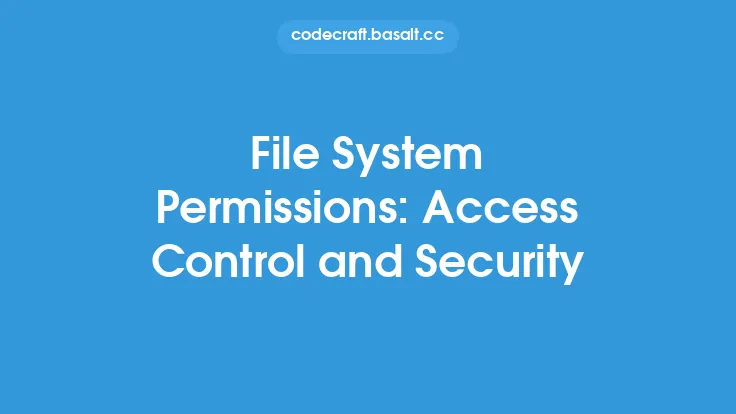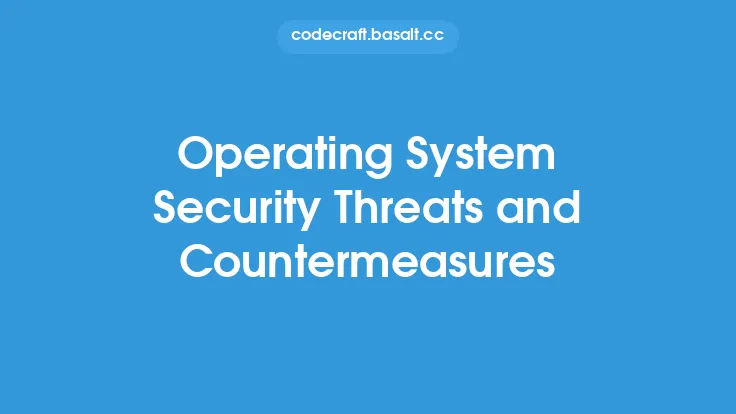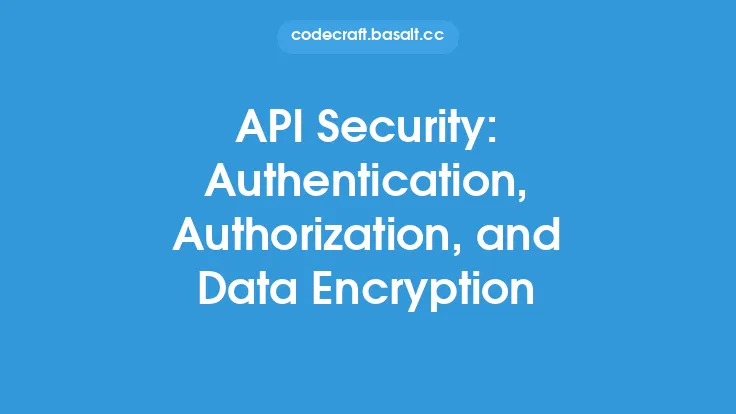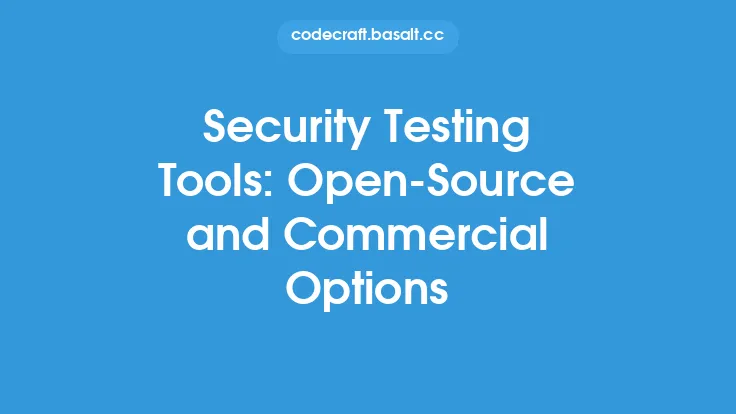System calls are the primary interface between user space and kernel space, allowing applications to request services from the operating system. However, this interface also provides a potential entry point for attackers to exploit vulnerabilities and gain unauthorized access to system resources. As such, ensuring the security of system calls is crucial to prevent attacks and exploits.
Introduction to System Call Security
System call security is a critical aspect of operating system security, as it involves protecting the interface between user space and kernel space from malicious activities. The goal of system call security is to prevent attackers from exploiting vulnerabilities in the system call interface to gain unauthorized access to system resources, such as sensitive data, privileged operations, or system configuration. To achieve this goal, operating systems employ various security mechanisms, including access control, input validation, and error handling.
Threats to System Call Security
There are several types of threats to system call security, including buffer overflows, integer overflows, and privilege escalation attacks. Buffer overflows occur when an attacker provides more input data than the system call expects, causing the excess data to spill over into adjacent areas of memory. This can allow an attacker to execute arbitrary code, potentially gaining control of the system. Integer overflows occur when an attacker provides an integer value that is outside the expected range, causing the system call to perform an unintended operation. Privilege escalation attacks occur when an attacker exploits a vulnerability in the system call interface to gain elevated privileges, such as root or administrator access.
Security Mechanisms for System Calls
To prevent these types of attacks, operating systems employ various security mechanisms, including access control lists (ACLs), input validation, and address space layout randomization (ASLR). ACLs restrict access to system calls based on the identity of the requesting process, ensuring that only authorized processes can invoke sensitive system calls. Input validation checks the input data provided to system calls to ensure it conforms to expected formats and ranges, preventing buffer overflows and integer overflows. ASLR randomizes the location of system call tables and other sensitive data in memory, making it more difficult for attackers to predict the location of vulnerable code.
Secure System Call Design
Secure system call design is critical to preventing attacks and exploits. A secure system call design should include several key elements, including input validation, error handling, and access control. Input validation should be performed on all input data, including integers, strings, and pointers. Error handling should be implemented to handle unexpected errors or exceptions, preventing attackers from exploiting error conditions to gain control of the system. Access control should be enforced to restrict access to sensitive system calls, ensuring that only authorized processes can invoke these calls.
System Call Interposition
System call interposition is a technique used to intercept and modify system calls, providing an additional layer of security and monitoring. System call interposition can be used to implement security mechanisms, such as input validation and access control, as well as to monitor system call activity for suspicious behavior. There are several types of system call interposition, including kernel-level interposition, user-level interposition, and library-level interposition. Kernel-level interposition involves modifying the kernel to intercept and modify system calls, while user-level interposition involves using user-space libraries or frameworks to intercept and modify system calls. Library-level interposition involves modifying system call libraries, such as libc, to intercept and modify system calls.
System Call Auditing and Logging
System call auditing and logging are critical components of system call security, providing a record of system call activity and allowing administrators to detect and respond to potential security incidents. System call auditing involves monitoring system call activity and logging relevant information, such as the system call number, input parameters, and return values. System call logging involves storing this information in a secure log file, allowing administrators to analyze and respond to potential security incidents. There are several types of system call auditing and logging, including kernel-level auditing, user-level auditing, and library-level auditing.
Best Practices for System Call Security
To ensure the security of system calls, several best practices should be followed, including input validation, error handling, and access control. Input validation should be performed on all input data, including integers, strings, and pointers. Error handling should be implemented to handle unexpected errors or exceptions, preventing attackers from exploiting error conditions to gain control of the system. Access control should be enforced to restrict access to sensitive system calls, ensuring that only authorized processes can invoke these calls. Additionally, system call auditing and logging should be implemented to monitor system call activity and detect potential security incidents.
Conclusion
In conclusion, system call security is a critical aspect of operating system security, involving the protection of the interface between user space and kernel space from malicious activities. To prevent attacks and exploits, operating systems employ various security mechanisms, including access control, input validation, and error handling. Secure system call design, system call interposition, and system call auditing and logging are also critical components of system call security. By following best practices for system call security, administrators can help ensure the security and integrity of their systems, preventing attacks and exploits that could compromise sensitive data or disrupt system operation.





